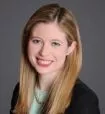U.S. Citizenship and Immigration Services (USCIS) will accept new H-1B petitions subject to the annual quota for fiscal year 2021 (FY2021) in early 2020 with a new preregistration system being implemented starting March 1, 2020.
Overview of the H-1B Visa Program
The H-1B visa program permits U.S. companies to employ foreign nationals in specialty occupations. A specialty occupation is a position that requires the theoretical or practical application of a body of highly specialized knowledge, such as that of an engineer, economist, or scientist. The specialty occupation must require a bachelor's degree or higher (or its foreign equivalent) in a specific, closely-related field.
The number of new H-1B visas is subject to an annual limit of 65,000 visa numbers per year with an additional 20,000 visas set aside for H-1B beneficiaries who possess advanced degrees from U.S. academic institutions. Of the 65,000 available H-1B visas, 6,800 are reserved for citizens of Chile and Singapore.
Some H-1B petitions, including those filed to extend or amend employment for foreign workers already in H-1B status and those filed on behalf of new workers to be employed by institutions of higher education or related nonprofit entities, nonprofit research organizations, or government research organizations are exempt from this lottery process.
New Initial Registration Process
USCIS will revamp the lottery process this year by implementing a new initial registration process slated to take place from March 1, 2020 through March 20, 2020. The initial registration process allows employers to submit basic data about the employees they wish to sponsor for H-1B status for a fee of $10 without completing full H-1B petitions on behalf of those employees.
If the annual quota were to be met during the initial registration period, USCIS would then conduct the annual lottery from the pool of registered cases and allow for a subsequent filing period for only those cases that are selected. This process will differ from past H-1B quota filing periods in that only those registrants selected in the lottery will be given the opportunity to submit complete H-1B petition filings.
Because many of the details of the new preregistration process are uncertain, Ogletree Deakins is monitoring developments and will timely notify clients of process changes.
How to Prepare for the FY2021 H-1B Cap
The annual fiscal year cap for H-1B visas is typically reached soon after the filing window opens. And for FY 2021, the annual fiscal year cap is likely to be reached early in the initial registration window. Because the number of cap-subject H-1B registrations—and resulting petitions that will be filed by employers—for FY2021 is uncertain and the exact timing of the H-1B selections in light of the new preregistration process is to be determined, employers may want to begin identifying individuals for whom H-1B sponsorship will be needed as soon as possible to allow sufficient time for H-1B electronic registration, as well as petition preparation.
In preparing FY2021 H-1B petitions, employers may want to keep in mind the time required to file and receive certification of a Labor Condition Application (LCA). The LCA is a prerequisite to a properly filed H-1B petition. As part of the LCA, employers must attest that they will pay the H-1B worker the higher of the prevailing wage or actual wage for that position in the geographic area of intended employment. The LCA is then submitted to the U.S. Department of Labor, which can take up to 10 days to certify the application. Employers may want to keep this processing time in mind to ensure timely approval of the LCA. Timely filing and approval of the LCA will help ensure an employer is best positioned to timely file a cap-subject petition.
Employers can take action now to initiate cap-subject H-1B petitions.
The content of this article is intended to provide a general guide to the subject matter. Specialist advice should be sought about your specific circumstances.


